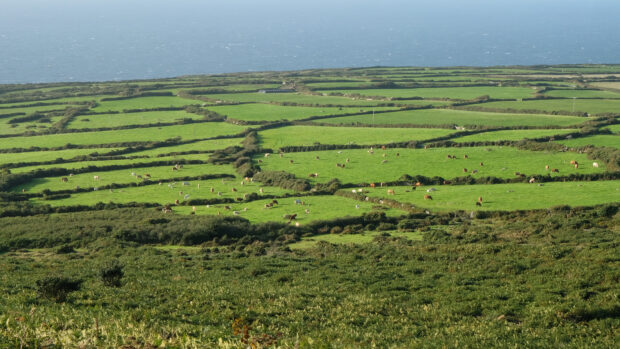
If you wish to cut a hedgerow during August, you must obtain written permission from the Rural Payments Agency (RPA) for a derogation.
When you apply for the derogation, please send all the available evidence (for example, photographs or diagrams) and explain what you want to do. You should also include the land parcel numbers you want the derogation for. Correspondence should be clearly marked ‘Cross Compliance Derogation’. You then need to wait for written permission before carrying out any work.
Useful information to help you with your hedgerows
You must not cut or trim a hedge between 1 March and 31 August (inclusive) unless:
- The hedge overhangs a highway, road or footpath over which there is a public or private right of way and the overhanging hedge obstructs the passage of, or is a danger to, vehicles, pedestrians or horse riders
- The hedge is dead, diseased, damaged or insecurely rooted and because of its condition, it or part of it, is likely to cause danger by falling on to a highway, road or footpath
- or obstructs the view of drivers or the light from a public lamp
- It is to carry out hedge-laying or coppicing during the period 1 March to 30 April (inclusive)
- It is to trim a newly laid hedge by hand, within six months of it being laid;
- You have received written permission from RPA to cut or trim during the month of August for the purposes of sowing oilseed rape or temporary grassland during the same August
- You have received written permission from the RPA to do so, to enhance the environment, improve public or agricultural access, or for reasons relating to livestock or crop production.
Where to find the rules
Please refer to the rules for GAEC 7a: Boundaries: Protect boundary features, such as hedgerows (hedges), stone walls, earth banks and stone banks. Cutting and trimming hedges.
How to contact RPA
You can contact the RPA by: Email: ruralpayments@defra.gov.uk. Remember to include your SBI number in the subject box of your email and also the words ‘Cross Compliance Derogation request’.
If you contact RPA by post: Rural Payments, PO Box 352, Worksop, S80 9FG. Again remember to include your SBI number and the words ‘Cross Compliance Derogation request’.
You can also use the online query form on the Rural Payments system.
Consultation on hedgerow protections in England
On 28 June Defra launched a consultation on hedgerow protections in England and would like to have your views. The consultation will be open for 12 weeks and closes at 23:59 on 20 September 2023. For more information, read the blog post about the consultation.
Hedgerows store carbon, support crop pollinators, create habitats for animals, slow water flow and create shade and fodder for animals. Defra wants to protect the hedges we have, invest in their maintenance and support further planting. Defra also wants to make sure that hedgerow regulations work for wildlife, the environment and farmers.
To stay up to date with the latest information and updates from RPA, sign up to our blog and follow us on social media on the following accounts:
- Follow us on Twitter @ruralpay
- Sign up for our blog at blog.gov.uk
- Facebook: facebook.com/RuralPaymentsAgency
- YouTube: Rural Payments Agency
By following and subscribing to our social channels and blog, you’ll be able to see the latest updates about important information. We also share top tips and announcements.
You can also listen to The RPA Podcast which we have launched to help farmers, landowners and rural communities keep up to date with the latest news from RPA.
If you need to submit a query to RPA, you can use the online query form in the Rural Payments service. Follow the steps in our video guidance on how to submit questions and receive answers from RPA all in one place in the Rural Payments service.
1 comment
Comment by Clive Fidler posted on
It would be very useful to be able to cut hedges in August because we could travel on stubble and henceforth cause less compaction.
If cultivation has started before 1st Sept we cause wheelings which would need to be removed before sowing causing extra work.
The only birds that appear to be nesting that late, appears to be pidgeons.
Pidgeons and crows have a high population in my area both cause us farmers damage, the crows attack nearly emerged cereals and the pidgeons are a well recognised pest of oilseed rape.